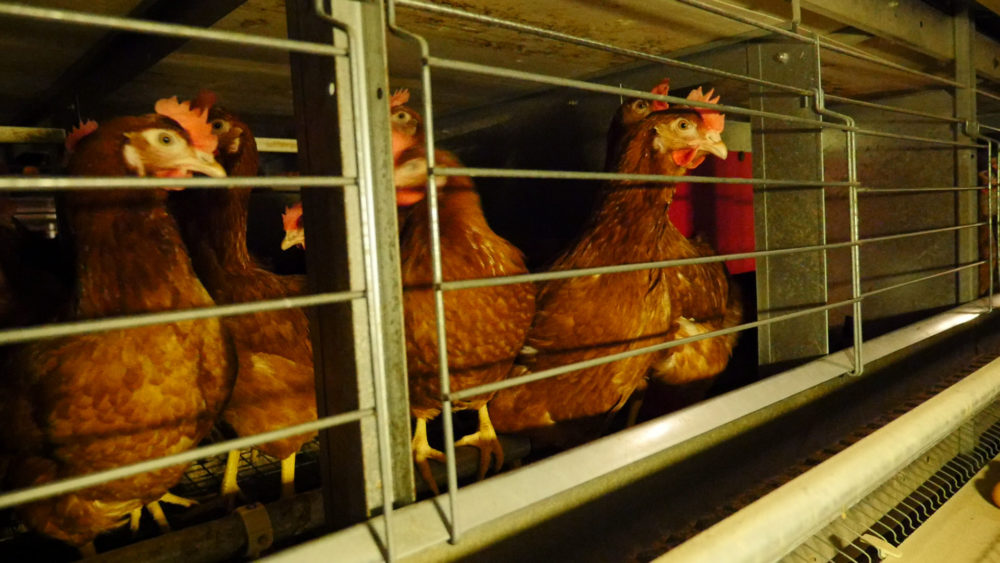Major supermarkets back call to ban cages for UK hens

Major supermarkets and food industry leaders have backed calls for the Government to ban cages for egg-laying hens.
In a letter to Environment Secretary Steve Reed on Wednesday, food companies urged ministers to bolster action on phasing out cages, which restrict the ability of hens to move and cause the birds to suffer high levels of stress.
Waitrose, Aldi, the Co-op, M&S, Morrisons, Greggs and Mitchells & Butlers said they have all either eliminated egg-laying hens or committed to do so by the end of 2025.
But after this, an estimated four million UK laying hens will still be confined to cages each year, according to campaign group Compassion in World Farming (CIWF) which co-ordinated the letter.
Higher welfare
To reach 100% cage-free hens and ensure a level playing field for egg sales and production in the UK, the signatories said Government action is now needed to complete the transition towards a higher welfare system.
To do this, they urged ministers to introduce bans both on the use of eggs from caged hens in domestic production as well as a wider ban on the sales of such eggs imported from overseas.
They also called for the publication of a long-awaited consultation on cages for farmed animals announced in 2022.
Change
To coincide with the letter’s publication, CIWF released research into company progress on moving towards cage-free eggs in the UK, France, Italy, Spain and Poland.
This found companies in the UK are leading the way on cage-free eggs, with the analysis suggesting around 77% of the market is already cage-free.
Tracey Jones, CIWF global director of food business, said: “To get hens out of cages, the UK Government must step up and enact legislation that supports market transition and drives the change needed for all food companies to only source and sell cage-free eggs and ends the production of caged eggs in the UK once and for all.”
The poll, carried out by More in Common, revealed that despite the current cost of living crisis, 67% of consumers would be happy to pay the estimated 6 pence more on their weekly shop for all UK hens to be cage free and live a better life.
The survey also found that three quarters (75%) of the British public believe the use of cages in farming is cruel.
Anthony Field, Head of Compassion in World Farming UK said: “It’s clear that the public and industry are in support of a ban on the use of cages for egg-laying hens, but the Government are lagging behind.
“They need to act by implementing an immediate ban on the installation of new caged systems and a phase out of existing cage systems for egg-laying hens by 2028.”
“Many countries across the EU, including Luxembourg, France, Germany and the Czech Republic have already made significant progress to End the Cage Age for hens.
“Now it’s time for the Government to follow suit and stop the suffering of millions of farmed animals confined in cruel cages across the UK.”
The PA news agency has contacted the Environment Department (Defra) for comment.
Support our Nation today
For the price of a cup of coffee a month you can help us create an independent, not-for-profit, national news service for the people of Wales, by the people of Wales.






Children often see the world for how it is. One such truth voiced by my eight year old step-son is the obvious cruelty of holding poultry in cages. Economic efficiency and human greed hardly cuts it as sufficient explanations to a child. And nor should it. Food production and food security doesn’t have to equate to the subjugation of other animals. Wales could be a leading nation in the adoption of new technology for the production of foods and other bio-products. Activities such as lab grown proteins, insect farming and a greater use of plants to extract essential amino acids… Read more »
The use of battery cages for birds was banned throughout the UK in 2012, however, what is called ‘enriched cages’ is still allowed. These are due to be banned throughout the EU by 2027 (includes the northern counties of Ireland), and in Scotland by 2033. England (Labour) and Wales (Labour) have yet to legislate. Why doesn’t CiWF name names?